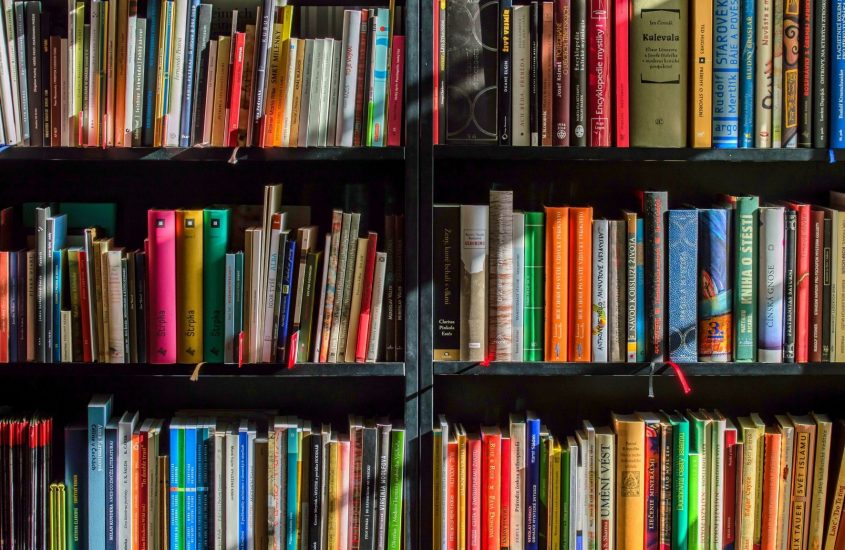Reading is important for your career

I quite enjoy reading, but I don’t always have the time (everyone’s excuse). Reading has many benefits, as an avid reader will tell you, and I think most working adults will agree that being able to read quickly with comprehension is quite an important skill. Reading is important for your career – I wish my former students would realise that (sigh).
In the course that I used to teach (it was a kind of like English as a foreign language), my students had to read a couple of books per semester and then do quizzes on them for marks. They hated it. None of the books were longer than a hundred pages, and they have to read about one every week. When I was their age (and now I know I’m old because I’m using this phrase) I could read 300 to 400-page books within a week, and I’m a slow reader.
The youth of today
There was one poor soul who complained frantically about the fact that we’re making him read. He said that he had only read one book cover to cover in his life and it was the book that he had read for marks for my course. I was shocked! He didn’t even read the prescribed books at school. I was so saddened and disheartened that this 18/19-year-old had only read that one book. He had no idea what he was missing out on.
Unsurprisingly, this situation is not unique. According to research done in America in 2013, only about 28 percent of adults read a book that year. It’s probably a lot less now. Again, it’s just not right.¹
There are so many benefits to reading every day—it simply cannot be understated. Let’s look at how reading can be beneficial for your career, whatever it may be.
It makes you more creative
These days, being creative is no longer just an advantage in the workplace, but some jobs see it as a requirement. It makes sense, a modern world with many problems needs innovative solutions—hence, there is a great need for creativity.
A few years ago, I read a book on how our memory works, and memory is closely linked to creativity. Creativity does not entail thinking of something that has never been thought of, it is rather making the connection between two or more things that were not previously connected.
At this point, I’m going to ask you to bear with me.
So, how does this relate to reading? Well, when you read, you learn more things. This can be from reading anything: novels, non-fiction, blogs, news articles—whatever floats your boat. When you read and learn more things, there are more ‘information items’ in your brain and thus the possibility of making a ‘new’ or creative connection goes up.
Also, with most fiction books, you are thrown into another world where many unexpected things happen, and living in that book for a while also gives you a different perspective—which also makes for fertile ground for creative thoughts.
There are many more things that influence your creativity; reading is just one (although, I would argue that it’s an important influence).
1. It improves your vocabulary and language skills
Reading is a great way to improve your proficiency in a language. This is not only great when you read in your mother tongue (there’s always room for improvement), but especially when you’re reading in your second or third language. For example, English is my second language and through reading, I have learned a ton of new words. What better way to learn new words than to see how they are used in context?
Reading also improves your spelling (I’ve found). It’s like your mind sucks up all this linguistic knowledge when you read that you subconsciously remember how a word is spelt, or you can sense when a word is spelt incorrectly or even misused.
The above also entails that readers make better writers, and I can testify to this. I could see in my students’ writing who is an avid reader and who isn’t. It’s not just in the writing’s formulation, it’s also in the spelling, grammar, and word choice.
It makes sense that if you as a student read well-written books (obviously, not only academic books are well-written) you will use that tone in your writing, use the ‘bigger’ words, and you will have a bigger vocabulary at your disposal to communicate effectively.
Also, improving your language skills is never wasted, no matter which career you choose. Being an articulate individual (in person or on paper) can only be beneficial to you.
2. Critical thinking skills
Reading helps you to learn and practice how to evaluate information. When you read, you are constantly asking yourself questions about the text. Is it entertaining, or who is the murderer, or who is the father? (All depending on the book, of course.) Books get you to question information and think about something differently. For instance, reading non-fiction books on psychology and business have taught me to look at situations from different angles.
It’s great if you have the opportunity to discuss the book with others, either in an English module at a university or at a book club. There you can analyse the characters and plot in depth and delve into the meaning of the book more than just taking the story at face value.
Lastly
There you are—the benefits that reading has for your career. Writing this post has inspired me to always carry a book around with me so that I read instead of just taking out my cell phone like, well, everyone else. Let’s be better.
Let me know what you’re reading in the comments
Michelle
P.S. If you’d like to contact me, feel free to comment below, send an email to thatmichelleperson@gmail.com or follow me on Twitter @M_ClutterBox.
1 https://www.goodnet.org/articles/10-lesser-known-benefits-reading










Smelly Socks and Garden Peas
I always have a book on the go! My kids seem able to read 3 at once, don’t know how they do it!
That Michelle Person
I also don’t know how they keep up with three books at once. Sometimes I struggle just to keep up with one book 🙂
Thanks for reading and commenting!
Helen
My favorite thing about reading is how it is the perfect way to escape the current reality. 🙂
That Michelle Person
Thanks for reading and commenting!